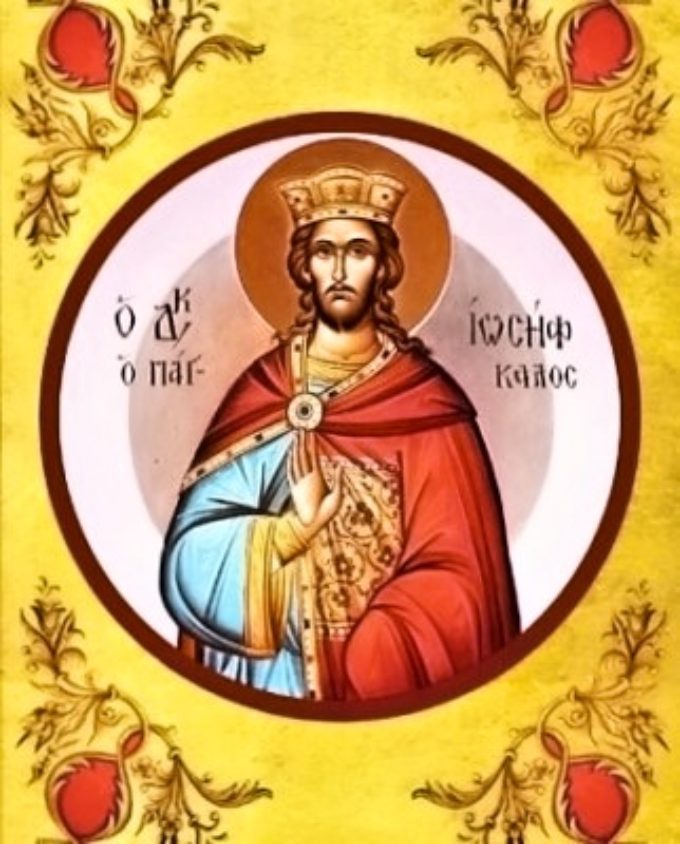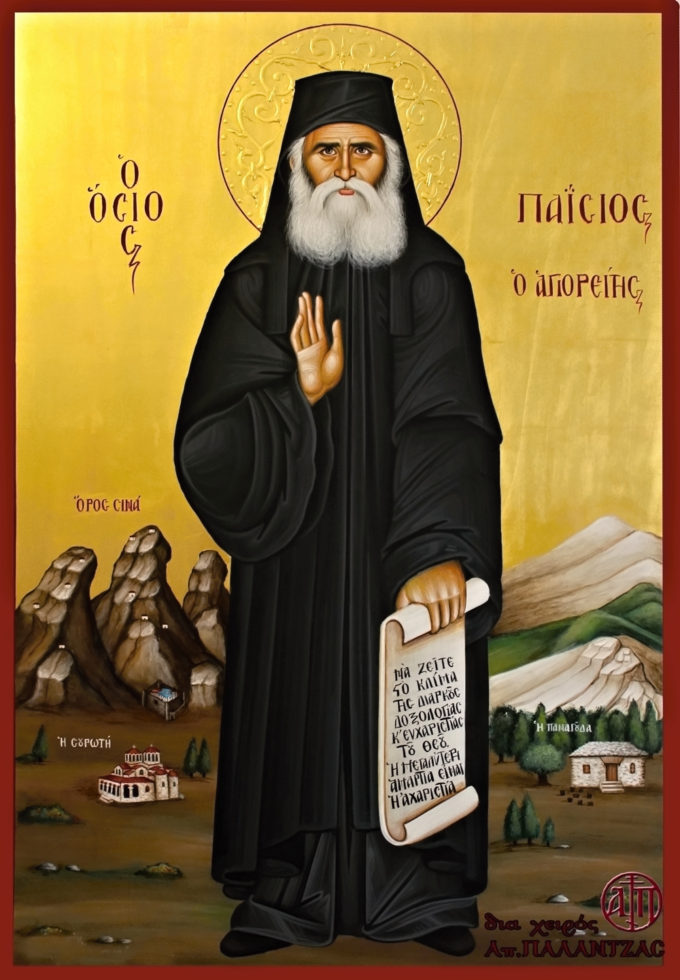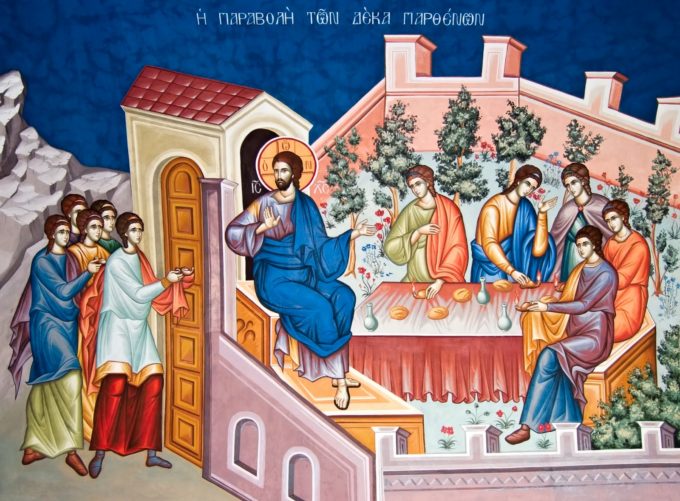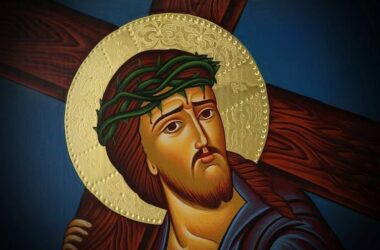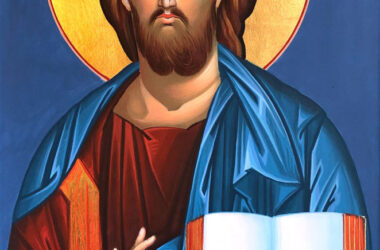The Holy Passions of our Lord Jesus Christ begin from today. Before others, Joseph the most handsome is taken as an anticipation of the Lord. Joseph was the younger son of Jacob, the patriarch, and he was born from Rahela. Envied by his brothers because of some dreams, was first hidden in a hollow. His father is lied by his sons by means of a coat soaked in blood, telling him that Joseph was kidnapped and eaten by wild beasts. Then he was sold to the Ishmaelites with 30 silver coins and they sell him to Putifar, the chief of the eunuchs of the Egyptian pharaoh. Since his mistress was angered by his purity, by the fact that he did not want to commit adultery, he ran leaving his coat in her hands. She defamed him to his lord so Joseph went to prison in chains. Then after he interpreted some dreams was taken out of the prison, went to the pharaoh and reigned over the whole Egypt. When the wheat was divided he was recognized by his brothers. He lived in a wonderful way his entire life and proved himself a very wise man, among other many good deeds and he died in Egypt. Joseph is the anticipation of Christ. Christ himself was hated by the Jews, his own people, He was sold with 30 silver coins by his disciple, He was put into a dark cave, in the tomb. Rising from there He reigns over Egypt, meaning over all sin, He defeats it powerfully, He leads the world and as a lover of people He redeems us by giving us the nourishment, giving Himself for us and feed us with the heavenly bread, with His life bearing body. For this reason today we commemorate blessed Joseph.
On the same day we have the remembrance of the dried fig tree because the evangelists Matthew and Mark add this miracle after Candlemas. Mark says:
‹‹The next day as they were leaving Bethany, Jesus was hungry. Seeing in the distance a fig tree in leaf, he went to find out if it had any fruit. When he reached it, he found nothing but leaves, because it was not the season for figs. Then he said to the tree, “May no one ever eat fruit from you again.” And his disciples heard him say it..››
The synagogue of the Jews is like a fig tree where the Savior did not find any fruit only the shadow of the law. That is why He took the law from them and made them completely unworthy.
But if someone asked: why a green tree dried because of a curse if it was not guilty of anything?
One like this should know that the Jews who saw Christ that He always did good to all and He never did not even the slightest wrong to anyone thought that He had only the power to do good and not the power to do something bad. But the Lord, being a lover of people did not want to show to them that He can also do bad. He wanted to convince the ungrateful people that He had also power to punish but being most kind He did not want to show his power by punishing the man but by punishing an inanimate and unfeeling nature.
However there is also a secret reason for the drying of the fig tree, coming to us from wise elders, as Isidor the Pelusiote says. The tree related to the violation of the divine commandment was the fig tree. From its leaves our ancestors who violated the commandment made their clad. Because it was not cursed then it was cursed now by Christ who is a lover of men, so that it won’t bear any fruit, which is the cause of all sin. And if the sin is like the fig is very obvious: it has the sweetness of pleasure, the stickyness of the sin and at last the bitterness of the conscience.
The parable of the fig tree was placed here to urge us to humble ourselves, as the story with Joseph was placed for portraying Christ. Any soul that lacks spiritual fruits is like a fig. If the Lord does not find content in it, the next day meaning after this life dries it by curse and sends it to the eternal fire. The dried fig tree from the Holy Gospel is like a dried pillar inspiring fear to those who do not bring any fruit of virtue.
For the prayers of the most handsome Joseph, Jesus Christ have mercy on us ! Amen.

